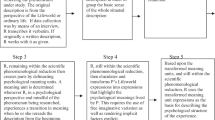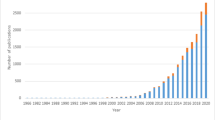Abstract
What are the links between neuroscience and personhood? This article explores this question empirically through the lens of ‘neurologic subjectivity’. Drawing on focus group research, we examine how individuals draw on both neuroscience and the neurological to articulate subjectivity. Our participants’ talk demonstrates the importance of ideas about the brain for understanding their selves and others. However, reference to the brain was not a thoroughly dominant discourse; rather, neurologic ideas may be accepted, played with, and resisted. Thus, the brain is an object of ‘mundane significance’, often distant from everyday experience. We argue that individuals can best be understood as bricoleurs, piecing together diverse knowledges pertaining to soma, psyche and society: neuroscientific concepts compete with, integrate into, and only occasionally fully supplant, pre-existing notions of subjectivity. It might therefore be argued that it is, in part, through the sociological gaze itself that neurologic subjectivity is constituted.
Similar content being viewed by others
Notes
Although we are aware of the theoretical tensions regarding the concepts of ‘subjectivity’, ‘personhood’ and ‘selfhood’ (Blackman et al, 2008; Burkitt, 2008), in this article we use these terms interchangeably, taking them to mean a person's feelings, beliefs and desires.
This study was funded by the Economic and Social Research Council, 2009–2010 (ESRC award RES-000-22-3501).
Some useful parallels may be drawn here with Williams's (2005) work on the sociology of sleep.
References
Blackman, L., Cromby, J., Hook, D., Papadopoulos, D. and Walkerdine, V. (2008) Creating subjectivities. Subjectivity 22 (1): 1–27.
Burkitt, I. (2008) Subjectivity, self and everyday life in contemporary capitalism. Subjectivity 23 (1): 236–245.
Bury, M. (1982) Chronic illness as biographical disruption. Sociology of Health and Illness 4 (2): 167–182.
Callon, M. and Rabeharisoa, V. (2004) Gino's lesson on humanity: Genetics, mutual entanglements and the sociologist's role. Economy and Society 33 (1): 1–27.
Cooter, R. (1984) The Cultural Meaning of Popular Science: Phrenology and the Organization of Consent in Nineteenth Century Britain. Cambridge and New York: Cambridge University Press.
Cunningham-Burley, S., Kerr, A. and Pavis, S. (1999) Theorizing subjects and subject matter in focus group research. In: R.S. Barbour and J. Kitzinger (eds.) Developing Focus Group Research: Politics, Theory and Practice. London: Sage, pp. 186–199.
Doidge, N. (2007) The Brain that Changes Itself: Stories of Personal Triumph from the Frontiers of Brain Science. New York and London: Penguin Books.
Dumit, J. (2004) Picturing Personhood: Brain Scans and Biomedical Identity. Princeton, NJ and Oxford: Princeton University Press.
Fox, J.E. and Miller-Idriss, C. (2008) Everyday nationhood. Ethnicities 8 (4): 536–576.
Frank, A.W. (2002) At the Will of the Body: Reflections on Illness. Boston, MA: Houghton Mifflin.
Frazetto, G. and Anker, S. (2009) Neuroculture. Nature Reviews Neuroscience 10 (11): 815–821.
Gimlin, D. (2006) The absent body project: Cosmetic surgery as a response to bodily dys-appearance. Sociology 40 (4): 699–716.
Greco, M. (1993) Psychosomatic subjects and the ‘duty to be well’: Personal agency within medical rationality. Economy and Society 22 (3): 357–372.
Hacking, I. (2002) Historical Ontology. Cambridge and London: Harvard University Press.
Irwin, A. (2006) The politics of talk: Coming to terms with the ‘new’ scientific governance. Social Studies of Science 36 (2): 299–320.
Kerr, A., Cunningham-Burley, S. and Tutton, R. (2007) Exploring ambivalence about genetic research and its social context. Social Theory and Health 5 (1): 53–69.
Leder, D. (1990) The Absent Body. Chicago, IL and London: University of Chicago Press.
Lock, M. (2004) Living cadavers and the calculation of death. Body & Society 10 (2–3): 135–152.
Millward, L.M. and Kelly, M.P. (2003) Incorporating the biological: Chronic illness, bodies, selves and the material world. In: S.J. Williams, L. Birke and G.A. Bendelow (eds.) Debating Biology: Sociological Reflections on Health, Medicine and Society. London: Routledge, pp. 157–168.
Newton, T., Handy, J. and Fineman, S. (1995) ‘Managing’ Stress: Emotion and Power at Work. London: Sage Publications.
Osborne, T. and Rose, N. (1999) Do the social sciences create phenomena? The example of public opinion research. British Journal of Sociology 50 (3): 367–396.
Phillip, R. (2007) Engaging ‘Tweens and Teens: A Brain-compatible Approach to Reaching Middle and High School Students. Thousand Oaks, CA: Corwins Press.
Pickersgill, M. (2009a) Between soma and society: Neuroscience and the ontology of psychopathy. BioSocieties 4 (1): 45–60.
Pickersgill, M.D (2009b) Ordering disorderly personalities: Co-producing antisocial personality disorder through policy, science and standards. Unpublished PhD thesis, University of Nottingham.
Pickersgill, M.D. (2011a) Connecting neuroscience and law: Anticipatory discourse and the role of sociotechnical imaginaries. New Genetics and Society 30 (1): 27–40.
Pickersgill, M.D. (2011b) ‘Promising’ therapies: Neuroscience, clinical practice, and the treatment of psychopathy. Sociology of Health and Illness 33 (3): 448–464.
Rose, N. (2007) The Politics of Life Itself: Biomedicine, Power and Subjectivity in the Twenty-first Century. Princeton, NJ and Oxford: Princeton University Press.
Rose, N. (2008) Psychology as a social science. Subjectivity 25 (1): 446–462.
Shapin, S. (1975) Phrenological knowledge and the social structure of early nineteenth-century Edinburgh. Annals of Science 32 (3): 219–243.
Scheper-Hughes, N. and Lock, M.M. (1987) The mindful body: A prolegomenon to future work in medical anthropology. Medical Anthropology Quarterly 1 (1): 6–41.
Schutz, A. (1970) Reflections on the Problem of Relevance. New Haven, CT: Yale University Press.
Terkelsen, T.B. (2009) Transforming subjectivities in psychiatric care. Subjectivity 27 (1): 195–216.
Thomson, M. (2006) Psychological Subjects: Identity, Culture and Health in Twentieth-century Britain. Oxford: Oxford University Press.
Vidal, F. (2009) Brainhood, anthropological figure of modernity. History of the Human Sciences 22 (1): 5–36.
Williams, G. (1984) The genesis of chronic illness: Narrative re-construction. Sociology of Health and Illness 6 (2): 175–200.
Williams, S.J. (2005) Sleep and Society: Sociological Explorations and Agendas. London: Routledge.
Williams, S.J. (2010) New developments in neuroscience and medical sociology. In: W.C. Cockerham (ed.). The New Blackwell Companion to Medical Sociology. Oxford: Blackwell Publishing, pp. 530–551.
Williams, S.J. and Bendelow, G.A. (1998) Malignant bodies: Children's beliefs about health, cancer and risk. In: S. Nettleton and J. Watson (eds.) The Body in Everyday Life. London and New York: Routledge, pp. 103–123.
Acknowledgements
This research was funded through by the ESRC as part of a research project titled, ‘Constituting Neurologic Subjects: Neuroscience, Identity and Society after the “Decade of the Brain” ’ (RES-000-22-35). We are very grateful to all our focus group participants for generously giving of their time, and to Epilepsy Scotland, Headway and the Scottish Dementia Working Group for their help with recruitment.
Author information
Authors and Affiliations
Corresponding author
Rights and permissions
About this article
Cite this article
Pickersgill, M., Cunningham-Burley, S. & Martin, P. Constituting neurologic subjects: Neuroscience, subjectivity and the mundane significance of the brain. Subjectivity 4, 346–365 (2011). https://doi.org/10.1057/sub.2011.10
Published:
Issue Date:
DOI: https://doi.org/10.1057/sub.2011.10




